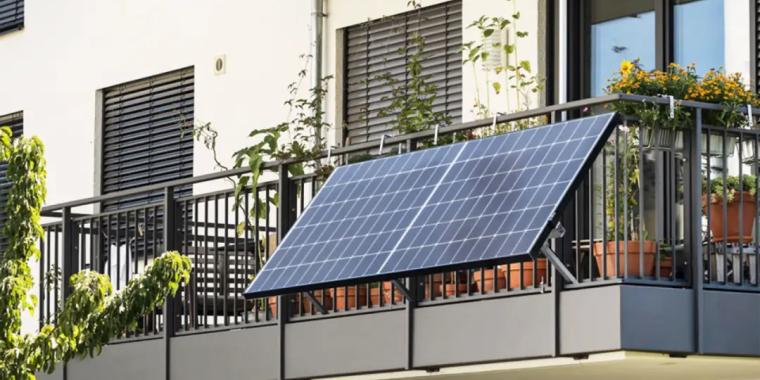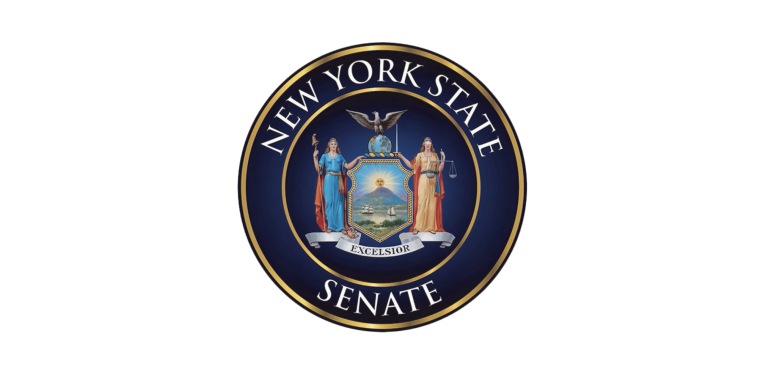
Krueger, Gallagher Introduce SUNNY Act To Support Balcony Solar
September 25, 2025

Albany – Today, Assemblymember Emily Gallagher and Senator Liz Krueger announced the introduction of the Solar Up Now New York (SUNNY) Act, which would exempt small balcony solar, also known as portable or plug-in solar, from existing interconnection and net metering requirements. Following on the passage of similar, first-in-the-nation legislation in Utah, this small statutory change has the potential to make solar generation available to millions of New Yorkers who cannot install rooftop solar, either because they are renters, cannot afford the up-front cost, or do not have an appropriate roof.
"Plug-in solar is a powerful tool to deliver enhanced energy independence and affordability to millions of New Yorkers who are currently shut out of the solar economy," said Senator Krueger. "These tiny tweaks to our current laws around interconnection and net metering can be a game-changer for renters, low-income New Yorkers, and many others who can't install rooftop solar. Mass adoption of plug-in solar could also reduce demand on the grid, saving all ratepayers money by avoiding the need for costly grid upgrades. After all, the sunshine is free, so everyone should be able to benefit from it."
“Plug-in solar energy provides an incredible opportunity for New Yorkers — especially tenants and apartment-dwellers — to harness the power of the sun to take control of their energy production, decrease their energy bills, and reduce their carbon footprint,” said Assemblymember Gallagher. “This legislation is popular and empowering, allowing tenants the same opportunities to control their energy costs that homeowners can take advantage of — something that urban residents have been eager to experience. We have to dramatically increase our reliance on solar energy if we are to address climate change and get utility costs under control, and this bill is an important step in shifting our trajectory."
To confront the affordability crisis as well as achieve New York’s clean energy agenda and long-term climate goals, the state must use every tool available to address rising energy costs, remove bureaucratic barriers, help mitigate the impact of the abrupt repeal of federal solar tax credits, and strengthen existing state solar programs. Per the State’s obligations under the Climate Leadership and Community Protection Act (CLCPA), New York has excelled in utilizing solar power, but has struggled in meeting emissions reductions, offshore wind, and renewable energy storage goals.
Plug-in solar devices offer an opportunity for New York to continue expanding on the progress made towards a sustainable future, offering residents guaranteed utility bill savings with minimal upfront costs and without the need for burdensome permitting processes. These devices help democratize energy production and expand access for New Yorkers who may not own a home but have an outdoor space suitable for use, enabling participation in the solar economy in a cost-effective manner. Widespread adoption of plug-in solar devices could also reduce overall costs for the electric grid, decreasing demand on the grid and reducing the need for additional capacity investments, which will save all ratepayers money.
Plug-in solar devices are not currently regulated in New York, preventing their adoption, while Utah leads the nation on expanding access to this technology. As these devices become more popular across the United States, adoption in the state is expected to grow significantly. Establishing clear guidelines now will ensure that products meet national safety and performance standards, protect consumers, and promote responsible expansion of this technology.
State-level leadership is urgently needed to deliver cost savings to residents, accelerate clean energy adoption, and expand equitable access to affordable power. The SUNNY Act provides a regulatory framework for a nascent industry and ensures that New York maintains local oversight while advancing its affordability, clean energy, and climate commitments.
Bill McKibben, co-founder of Third Act, said: “Apartment dwellers deserve a place in the sun too—balcony solar extends the clean energy revolution to everyone.”
Lauren Phillips, Bronx mom, member of Climate Families NYC, said: "Balcony solar is a no-brainer win-win for families: it will help working parents like me shave money off their power bills and fight climate change. As a mom of two, every dollar counts. I can’t wait to get solar panels on my balcony and show my kids that we can take climate action and save money at the same time."
Priya Mulgaonkar, Campaign Manager of the Green Co-op Council, said: “Balcony solar is an exciting opportunity to bring cost savings and clean energy to apartment dwellers. Thousands of people across New York are ready to put up solar in their homes tomorrow, but we need the state to remove barriers before we can reap the benefits of plug-in panels. We’re grateful to Senator Krueger and Assembly Member Gallagher for cutting red tape to help co-op owners and all New Yorkers enjoy cheaper, cleaner energy.”
Cora Stryker, cofounder of Bright Saver, the first and only nonprofit dedicated to making plug-in solar accessible to all Americans, said: "Right now, if you lived in Germany, you could buy one of these at IKEA, take it home, plug it in, and produce clean energy within minutes. The legislation being introduced today makes it just as easy for all New Yorkers - renters, homeowners with a small outdoor space, apartment dwellers with a sunny balcony or south-facing window but no access to a roof - to reduce energy bills and greenhouse gas emissions at the same time."
Kate Selden, Senior Policy Manager at Solar One, said: "In today's climate emergency, we need every tool in the toolbox to rapidly expand renewable energy and stave off the worst impacts of climate change in our communities. Balcony Solar is one of those tools, and we are excited to see solutions that get people excited about solar energy and the bill savings it can bring. As the federal government dismantles support for solar, we must bring down the cost of solar at the state level to increase access and affordability."
###
related legislation
Share this Article or Press Release
Newsroom
Go to Newsroom


